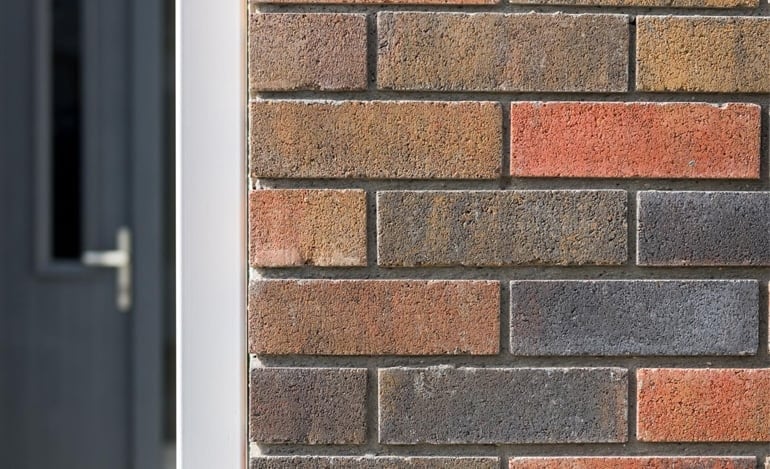Products
Back
Constellations
Back

Facing bricks are commonly used for the exterior walls of buildings, to create a pleasing facade that forms the first impression people get of the building as they approach.
For many years, the only option for specifiers was to use clay bricks. But with advances in technology and materials in recent years, we have seen a dramatic increase in the use of concrete facing bricks.
Today, concrete facing bricks provide a valuable alternative to clay bricks, bringing with them a host of benefits for architects, contractors and house builders.
Here are 10 reasons why you should consider concrete facing bricks for your next project.
Soaring energy costs have caused clay brick prices to rise dramatically, due to their energy intensive manufacturing process.
Now, architects and housebuilders who have traditionally specified clay bricks, often have no option but to seek more cost-effective alternatives – such as concrete bricks – in order to keep their project within budget.
Clay bricks are fired in a kiln at over 1,000oC, using huge amounts of energy in the process. Because of this, clay bricks are often seen as having a high carbon footprint due to the CO2 emissions that are produced during manufacturing.
Concrete bricks, however, don’t require such energy-intensive manufacturing processes. In fact, Tobermore’s facing bricks have a carbon footprint of 22kgCO2/m2. What’s more, all facing bricks are manufactured with 100% renewable energy and water collected by rainwater harvesting systems.
At Tobermore, we produce facing bricks in colours which fully complement and blend with the wide range of block paving and paving flag products also on offer.
We only use the best iron oxide pigments available to produce the distinctive colour range available with facing brick. The pigments are manufactured to BS EN 12878 and the bricks are through coloured – meaning the colour is the same through the entire brick. Take a look at completed projects to see how well the colour is retained over the years.
Every product made at Tobermore is subject to stringent quality checks through the manufacturing process.
All our products are manufactured in accordance with an accredited ISO9001:2008 quality system, and our facing brick products are manufactured to BS EN 771-3:2011.
We have recently published Environmental Product Declarations (EPDs) for over 400 of our paving and walling products. This means that following a rigorous Life Cycle Assessment, we can accurately demonstrate the environmental impact of our facing brick products.
In addition, our manufacturing facilities are accredited to ISO14001:2004 Environmental Management and we publish our environmental labels and declarations in accordance with ISO14021:2001.
At Tobermore, we are able to meet the significant demand for paving and walling products in the UK and Ireland. That’s thanks to our manufacturing plant – which is one of the largest in the UK and Ireland – located at our 50-acre site in Northern Ireland.
Facing brick products are available from stock, or can be made to order within a very short time frame – usually in two to three weeks. Over 98% of deliveries to Great Britain arrive on the day of request, giving customers confidence to meet their own project deadlines and timescales.
Durability is a crucial factor for architects and specifiers when choosing a facing brick product for a scheme.
Tobermore facing bricks are categorised as frost resistant (F2), proven by independent laboratory tests.
Tobermore facing bricks are manufactured with three perforated voids in each brick.
This provides greater strength in the brick layer as the product will bond to the mortar on both sides and help to reduce the issue of floating.
Our facing bricks exceed a minimum compressive strength in excess of 22N/mm2 and comfortably exceed the performance requirements of the standard. It means our facing brick will gain strength with age.
Efflorescence is perhaps the single biggest problem encountered with concrete products or materials containing calcium oxide, which is found in cement. The cause of efflorescence is simply a chemical reaction between the cement in the concrete and rainwater causing the formation of calcium carbonate. This white, crystalline substance stains the surface and spoils the appearance of the paving.
In the Tobermore manufacturing process, we cure our products in a warm vapour atmosphere for 12 hours, which ensures that efflorescence is dramatically reduced. Moreover, the vapour curing also enhances the colour, improves the strength and cures the products much faster, allowing products to be used almost immediately.
View our range of facing bricks and contact our sales team today at sales@tobermore.co.uk
